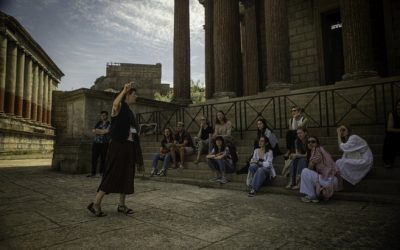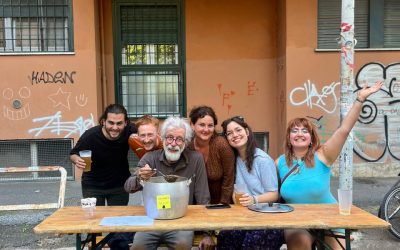Intercultural dialogue
The Power Behind Good Intentions
Training
Written by Isabel from Ireland
Meet Isabel: a participant of SCI Austria Training “The power behind good intention”
In December – 1 to 7 December 2022 – SCI Austria organised an Erasmus+ training about colonialism and volunteerism in Innsbruck. Indeed, colonialism is still part of the world dynamics and geopolitics, affecting everything even on an individual and unconscious level. The training aimed to reflect on and to improve on the way organisations send volunteers from the Global North to the Global South.
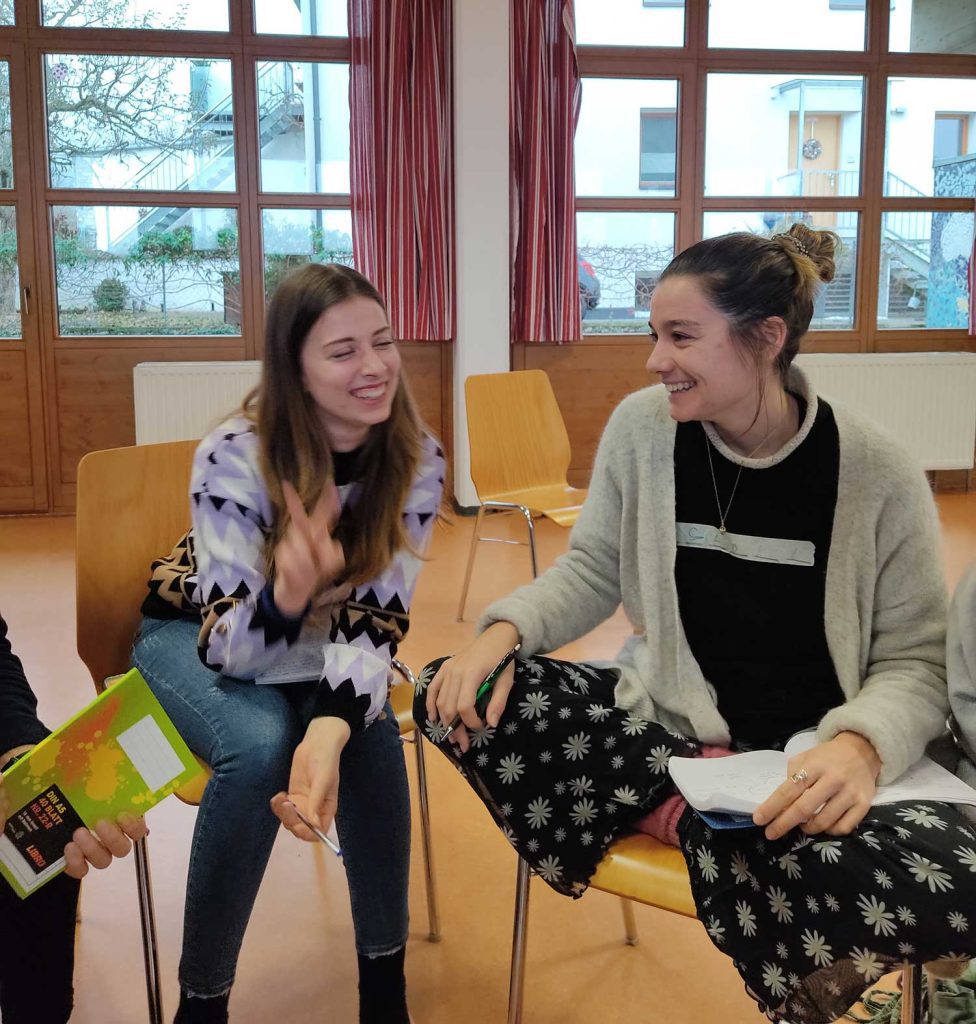
Can you introduce yourself to us ?
My name is Isabel Garland, and I am currently working two jobs as a research assistant in an Irish university on projects concerning the human element of the energy transition, mostly on a European level, as well working as a policy consultant in EUChanger, a consultancy organisation in Brussels that engages with the European Union to advocate for policies that serve the public good, specifically issues pertaining to the environment and human rights.
Why did you decide to take part in the training “The power behind good intentions”?
I have a close relationship with VSI, the Irish branch of SCI (the organisation who ran the training) and they asked me if I wanted to take part, and I said yes because the topic seemed original and intriguing- especially as I had already taken part in several volunteering projects, both in Europe and once in the so-called ‘global south’ (Malawi). The idea of spending a week in the mountains in Innsbruck to discuss racism and neo-colonialism in the context of global volunteering was very exciting to me, so I decided to go for it. We were all very lucky to have been given that opportunity!
What is your relation with SCI?
I did a European Solidarity Corps (ESC) project last year (2021-2022), and the sending organisation in Ireland VSI, are the Irish branch of SCI. VSI is a very kind and supporting sending organisation, and even after my volunteer projects we are still in contact, as they organise online workshops on different topics to try and keep volunteers active, even when they finish their projects abroad. So, in a sense, I am familiar with SCI because of VSI.
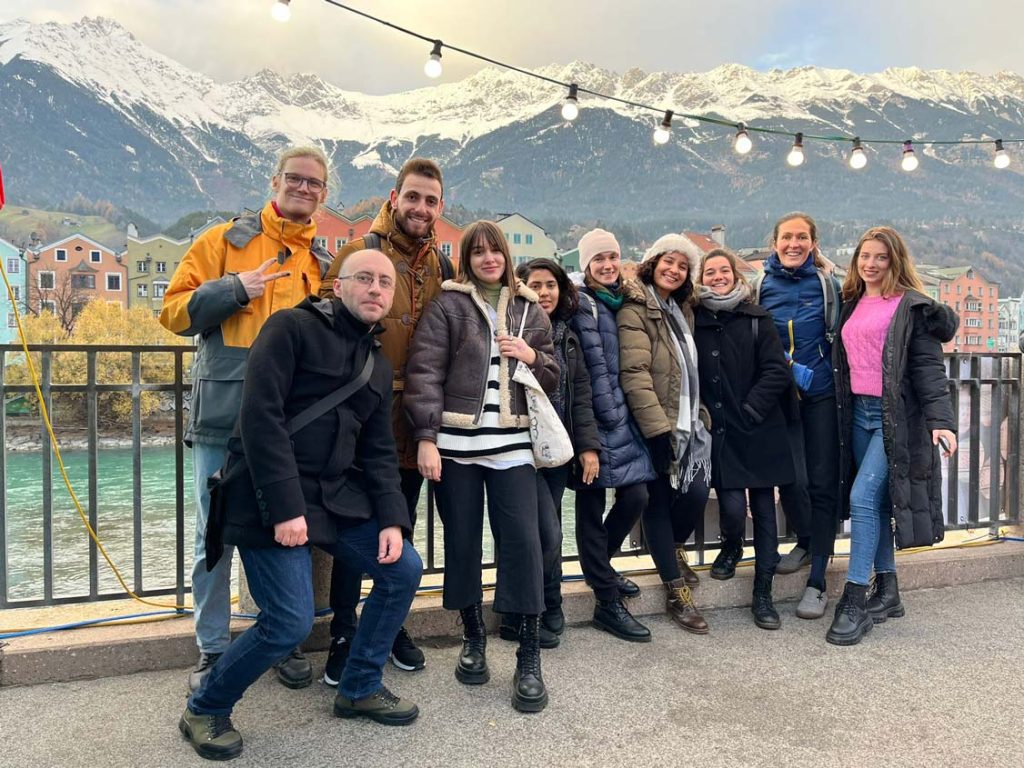
What were your previous experiences and knowledge with colonialism and volunteering?
Luckily, I already had the chance to reflect on colonialism and volunteering through different experiences in university on volunteering projects. In University, I studied ‘European Studies’, which covered learning about the continent’s languages, history and politics. In one of my favourite classes, we would read and discuss topics about the ‘dark side’ of European progress, and I remember having discussed ‘Eurocentrism’ (a world vision that sees Europe at the centre of everything, and a complex of superiority regarding the European way of life) and the ‘othering’ of those who were not ethnically ‘European’. These readings and discussions in University thus provided me with a more critical lens on Europe’s prosperity, and the underlying colonial-racist reality that lies beneath our so-called “success”.
When I was 17 (and still in secondary school) I also did a volunteering project in Malawi, the charity called Habitat for Humanity, who go to countries in the “global south” to build houses for an impoverished village. This opportunity was advertised by my school, and many students wanted to go! In the end, they took 16 students per year, with some teachers. It was sold to us as a very exotic “life changing” and “impactful” experience. We really believed that going over there we were “making a big difference” and helping to fight poverty and that whole story. But in the end, we were just a bunch of naïve and badly prepared school kids going over with a lot of illusions. I don’t regret going, because in the end I think the experience did help to shape my worldview and ended up showing me a very different reality to what we see in Europe, and I think that’s still valuable for anybody to witness. But whether we went about it in the most ethical, and prepared way is another question.
What new knowledge and experience did you gain in this training?
This training helped me to confront a lot of my biases as a white privileged European. It’s so easy to forget that in Europe we are approaching international volunteering projects from a very privileged position. This training was very good at creating the space for critical self-reflection about ‘critical whiteness’ and how to deal with it using different methods, i.e. the RACE method and with a very well-crafted silent exhibition and toolkit. We also discussed how we could use these tools to prepare volunteers before they go to the global south- and also debated whether it was even necessary from an environmental perspective to send volunteers on short-term trips to the global south in the first place.
They were using non formal education, which I already experienced several times. As a method I think it’s super beneficial and enjoyable, it makes learning a much more interactive, social process and I think it should be applied more in schools and other learning centres.
Did your view change on some specific topics?
I learnt more about the unequal reality and different motives of a) volunteers from the “global north” going to the “global south” and b) those from the “global south” going to the “global north”. Those from the North, for example, think they are going for “interesting experience”, to help the “needy” and they are seen by others in a very positive light, whereas those from the South coming to the North are seen by northerners as coming in the hopes of being able to stay there permanently. One of the participants even told me that sending organisations in the global south often don’t trust volunteers who travel to the global North to volunteer to return back home. There is a very unbalanced reading grid and reality in function of where you are coming from.
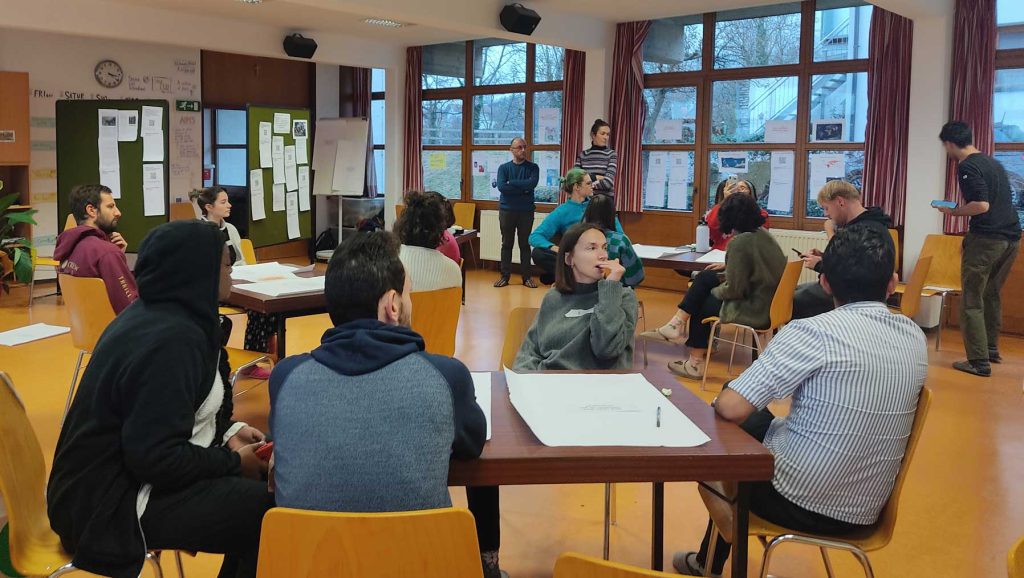
What change do you think is important to make?
More thorough preparation of volunteers when they go on projects, especially to the global south. First, allow only long-term projects if the distance is very far (for climate reasons) and also consider ways that the volunteer can help the global south without having to go there in the first place- such as through actions such as political protests, letters to officials about the country’s foreign/AID/Development policies, helping in shelters that receive refugees from the global south, to name a few. A volunteering organisation could be a platform of engaging volunteers to be involved in these more local actions, which can often have a bigger impact than actually going to the global south.
In your opinion what is something that everyone should learn / reflect about on the topic of racism and colonialism?
I would ask people to reflect on (and talk about) the subconscious biases they may have about race. Games such as the ‘Theatre of the Oppressed’ are useful because they put you in the position of people who are victims of racism. And for colonialism, a good place to start with is food: to think about the places where our food comes from and how this may have a colonial or neo-colonial story.
You can still join!
Want to have your own volunteer experience for peace?
Read more Voices of Volunteers

